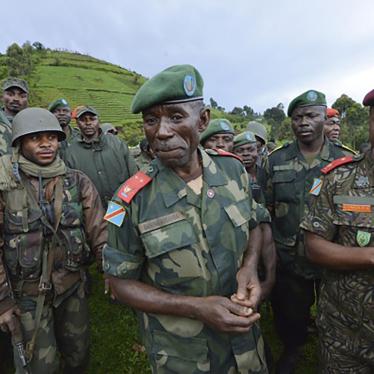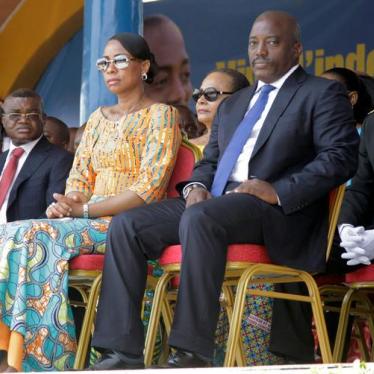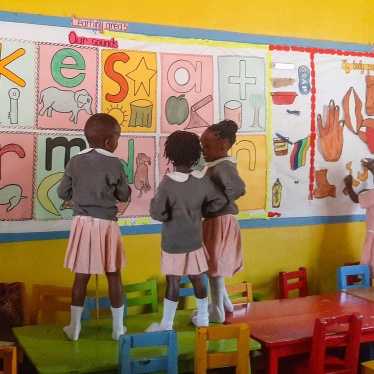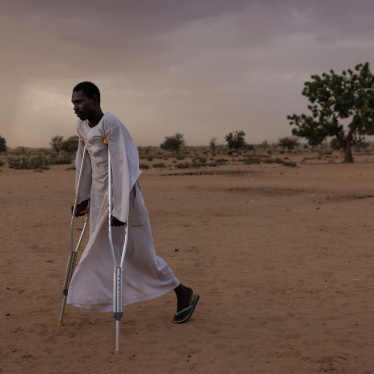Dear High Representative,
Dear Foreign Ministers,
We are writing to urge your support for the renewal of the European Union’s targeted sanctions against senior officials responsible for violent repression and other serious human rights abuses in the Democratic Republic of Congo. We understand that a decision regarding the renewal of the sanctions imposed against 14 Congolese individuals in December 2016 and May 2017, renewed on December 10, 2018, will be taken soon.
The targeted sanctions imposed by the EU – together with sanctions from the United States and the global sanctions imposed by United Nations Security Council – appear to have played a critical role in convincing former President Joseph Kabila to commit to stepping down and organizing elections for his successor. But political repression continued in the run-up to the vote and an environment for credible elections did not exist, and impunity for serious human rights violations persists.
On January 10, 2019, Congo’s electoral commission provisionally declared opposition candidate Felix Tshisekedi to be president. This announcement conflicted with leaked data from the commission itself and the Catholic Church observation mission that showed that another opposition candidate, Martin Fayulu, won about 60 percent of the vote. Impunity for rights abuses may have contributed to conditions allowing for fraud around the vote tally.
Despite concerns around the fairness of the 2018 election, there have been some symbolic moves and commitments that demonstrate the new administration could have a different, and more constructive, view towards the promotion of human rights, including the release of political prisoners and the dismissal of the abusive head of the intelligence agency. However, to date, the systemic changes needed to end cycles of violence and abuse driven by impunity have been lacking.
Many of the individuals whom the EU sanctioned no longer hold the same function: some were promoted to more senior positions, others were moved into different, similarly powerful positions, and others may continue to play a role in ongoing abuses but in a less official capacity. The constant is that all these individuals continue to benefit from impunity for their role in past human rights abuses.
During his inaugural speech, President Tshisekedi promised that his government would prioritize a “determined fight” against impunity. Despite this, one year into the new administration, none of the 14 sanctioned individuals have been investigated or brought to justice for their alleged involvement in serious human rights violations. There is no indication that these individuals have lost their influence or changed their abusive behavior. Prematurely lifting sanctions now could allow President Tshisekedi to avoid delivering on his commitments, would signal that the EU is willing to ignore impunity for serious crimes, and could embolden senior officials to commit future grave abuses, whether they hold official positions or not.
Renewing targeted EU sanctions against top officials responsible for Congo’s violent repression of basic rights in recent years would demonstrate that the consequences for rights abuses persist until those responsible are held to account. The EU should also consider adding Kabila and other senior officials responsible for serious rights abuses to its sanctions list.
Maintaining and enhancing pressure from EU member states is urgently needed so that President Tshisekedi and other senior officials take the necessary steps to part from the abusive and corrupt rule of the Kabila administration and adopt systemic changes that solidify the rule of law and respect the rights of all of Congo’s people.
Thank you for your attention to this important matter.
Yours sincerely,
Lotte Leicht, European Union Advocacy Director, Human Rights Watch
Ida Sawyer, Deputy Africa Director, Human Rights Watch
CC:
Head of Cabinet of the EU’s High Representative for Foreign Affairs, Mr Stefano Grassi
Secretary General of the European External Action Service (EEAS), Ms Helga Schmid
Deputy Secretary General for political affairs, Political Director, EEAS, Mr Jean-Christophe Belliard
Managing Director for Africa, EEAS, Mr Koen Vervaeke
Deputy Managing Director for Africa, EEAS, Ms Birgitte Markussen
Head of Division for Central Africa, EEAS, Mr Gerardus Gielen
Deputy Secretary General for economic and global issues, EEAS, Mr Christian Leffler
Managing Director for human rights, global and multilateral issues, EEAS, Ms Lotte Knudsen
Deputy Managing Director for human rights, global and multilateral issues, EEAS, Mr Marc Giacomini
Head of Division for Human Rights, EEAS, Ms Luisa Ragher
Chair of the EU’s Political and Security Committee, Ms. Sofie From-Emmersberger
Ambassadors to the EU’s Political and Security Committee
Chair of the Council’s Working Group on Africa, Ms Marie Lapierre
Members of the Council’s Working Group on Africa
President of the European parliament, Mr David Sassoli
Chair of the European Parliament’s Committee for Foreign Affairs, Mr David McAllister
Vice-Chairs of the European Parliament’s Committee for Foreign Affairs
Chair of the European Parliament’s Subcommittee for Human Rights, Ms Maria Arena
Vice-Chairs of the European Parliament’s Subcommittee for Human Rights







